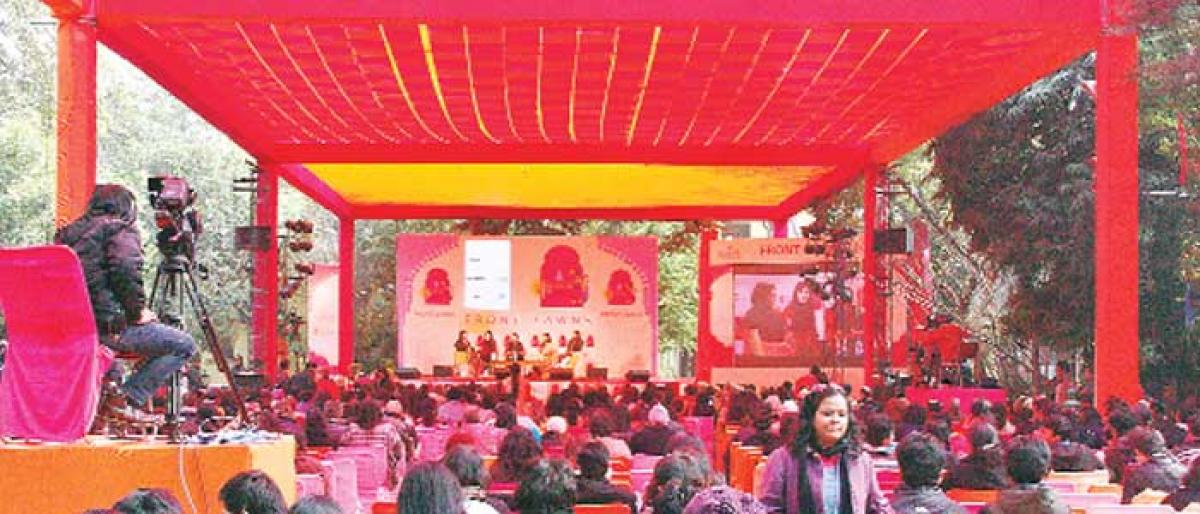Just In

Science, which focuses on facts, experimental validation and purported lack of social considerations, seems to be the last place where you could find gender disparity, but as experts say that it is a human activity after all and its practitioners, who largely happen to be men, cannot ignore their conscious or unconscious perceptions.
Science, which focuses on facts, experimental validation and purported lack of social considerations, seems to be the last place where you could find gender disparity, but as experts say that it is a human activity after all and its practitioners, who largely happen to be men, cannot ignore their conscious or unconscious perceptions.
Thus there have been no lack of erroneous assumptions about the side-lining of women in the scientific world. But while these have been largely remedied, the proportion of women in the field happens to be smaller than needed and while there can be steps taken by the governments, it also needs women to increasingly plump for careers in this field, said an all-women panel, which included an iconic entrepreneur, a theoretical physicist and a science communicator.
Initiating debate on “Inferior: How Science Got Women Wrong" at the just-concluded Jaipur Literature Festival 2018, moderator and journalist Namita Bhandare cited the TV pictures of sari-clad women scientists every time India successfully tests a rocket or places satellites into orbit, but said this obscures the fact that only 20 per cent of employees at Indian Space Research Organization are women and no woman has ever headed the organisation.
Author Angela Saini, whose book inspired the title of the session and was the basis of the discussion, said that scientific studies questioning women's ability to pursue science were often marred with observer bias as humans studying humans leads to dubious conclusions since researchers cannot entirely abandon their prejudices.
Citing one such research which claimed that since women have a smaller brain, they are intellectually inferior to men, Saini said: "Had larger brains led to more intelligence, whales would have been the smartest species." Stressing that size of brain is not an indicator of cognitive ability, she said while it was true that men and women had different brains, it was also true that "every single one of us has a different brain".
"Looking for group differences isn't helpful, because individual differences are far more pronounced," she said. Biocon founder and chairperson Kiran Mazumdar-Shaw, said that questions over women's supposed inferiority were a matter of nature versus nurture, and was "really about how you are raised." She added that her father was a huge influence on her as he backed her to do unconventional things, such as study brewing.
Harvard University professor and theoretical physicist Lisa Randall urged all women in the audience and elsewhere to pursue science. "You must want to do science and see real opportunity in it," she said, adding that "big ideas are really fun to work on".
While Bhandare stressed that the common mindset of prefacing a successful woman's achievements with the words "despite being a woman" must change. Mazumdar-Shaw said that unlike men, women often have to cross a "credibility curve", putting in a lot more effort to prove that they are worthy. However, she added that once you cross it, people recognise you purely for your talent. Citing her own example, she said, that today she is not merely recognised as a "woman business leader".

© 2024 Hyderabad Media House Limited/The Hans India. All rights reserved. Powered by hocalwire.com







